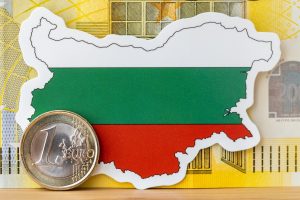Open Offshore Banking Account in Bulgaria (Detailed Guide)12 min read
Reading Time: 5 minutesOffshore banking in Bulgaria has gained some popularity recently. Bulgaria offers an expansive network of banks with branches and ATMs spread throughout its territory, making opening bank accounts in Bulgaria straightforward for non-residents.
Many Bulgarian banks provide an electronic ticket queueing system, making appointments unnecessary. Larger branches should have English-speaking staff to facilitate your experience.
The active use of different exchange rates in Bulgaria and the validity of the EURO currency are very advantageous for offshore banking. You can reach The Kingdom Bank‘s experience in offshore banking and Bulgarian market online in seconds.
How to Open an Offshore Bank Account in Bulgaria?
Bulgaria has long been considered an attractive option for offshore banking due to its attractive tax benefits and cost-competitive labor costs, making it a top choice among international businesses looking for expansion. But its complex bureaucracy can prove challenging for expats; accessing English-language services may prove even harder.
Bulgaria has seen impressive expansion in both IT and business process outsourcing in recent years, with companies from both America and Europe setting up shop there to take advantage of Bulgaria’s low labor costs and attractive corporate income tax rate.
Bulgaria stands out among EU nations as it allows foreign investment into domestic companies without restrictions. Furthermore, this nation is known for its generous pension and healthcare systems as well as affordable real estate prices and an active labor market.
Bulgaria imposes certain specific requirements when opening a bank account, including annual reporting to BULSTAT and paying at least BGN 1,600 (USD 700) as minimum remuneration for employees. Furthermore, Bulgarian law mandates businesses register their working hours with local authorities.
Banks commonly charge fees to process applications and open accounts, making it essential to carefully explore all your options before selecting one in Bulgaria.

How to Do Offshore Banking in Bulgaria?
Before 2016, opening a bank account in Bulgaria as a non-resident was relatively straightforward: you could simply walk in with your passport and open an account within an hour. Today, however, things have changed considerably: banks now have stricter requirements regarding supporting documents, translations, authentications and residency ties as well as having less English speaking staff available. Furthermore, exchange rates may not always be favorable and high fees.
However, Bulgaria still provides several viable offshore banking options. The Kingdom Bank stands out among them due to their commitment to serving foreigners with excellent products, digital services and customer service.
Bulgaria offers an ideal combination of international business expansion and low tax rates for traders and entrepreneurs in crypto who wish to cash out their holdings in an efficient tax environment. Furthermore, Bulgaria provides an ideal offshore-like jurisdiction in which to meet corporate substance and CFC rules.
To open a bank account in Bulgaria as a foreigner, you’ll need a passport or ID card as well as an address where correspondence should be sent. Your lease agreement and/or background check may also be requested by the bank and approved applications will receive a bank card to collect at a branch location or be delivered directly.
How to Open an Offshore Banking Account in Bulgaria?
Non-residents may find opening a bank account in Bulgaria challenging. Banks require lots of paperwork and may charge fees for international transactions – both of which add costs over time and make this more costly than necessary.
As it happens, Bulgaria is home to numerous foreign-owned banks that accept foreigners known for providing excellent customer service and value creation solutions that may prove helpful when moving here. Many expats take advantage of them when making the transition.
Bulgaria offers an advantageous corporate tax code that can save businesses money. Their flat 10% rate is one of the lowest in Europe and makes Bulgaria an excellent location for European traders, entrepreneurs, and investors looking to relocate.
Bulgaria uses the lev, divided into 100 stotinki. The value of the lev is pegged to that of the euro and remains relatively stable; furthermore, Bulgaria’s banking sector has been highly regulated by the EU – making it an even safer destination.
Bulgaria offers one of the best SEPA banking systems available, providing access to EU banks’ accounts at low rates – perfect if you have European clients or expenses, or wish to make payments in EUR.
Can I Open an Offshore Banking Account in Bulgaria Remotely?
Bulgaria offers those interested in opening an EU bank account remotely an attractive choice. As a European jurisdiction with low personal and corporate tax rates, Bulgaria provides many advantages to entrepreneurs, investors, traders and others looking to internationalize their operations. European traders who have hit it big in crypto could open a Bulgarian bank account as a tax-efficient means to cash out holdings tax-wisely while wealthy individuals subject to CFC rules can use Bulgaria to restructure assets while also gaining citizenship or residency status.
Opening a bank account in Bulgaria for nonresidents can be relatively straightforward, though some work and patience will likely be necessary. Expats should keep in mind that many bank personnel don’t speak English – having an interpreter available may prove invaluable! Likewise, paperwork submission requirements may require considerable work.
An application form alone won’t do. Prospective bank customers must also provide original and notarised copies of their ID documents as well as background and credit checks conducted by most banks.
Which is the Best Online Bank in Bulgaria?
Bulgaria is a very useful financial center for offshore banking. Both its inclusion in Europe and its reliable and stable management make it an ideal country for offshore banking.
Whether for work, study or retirement purposes, when traveling to Bulgaria it’s essential that you find out how best to manage your money. Establishing a bank account for non-residents in Bulgaria can be done either online or in person, provided your identity documents – passport preferred – and proof of address are presented. Each bank may require a minimum deposit amount, which varies between institutions.
The Kingdom Bank has extensive experience working with European currencies, making them ideal if you require SEPA transfers or have clients located across Europe. Furthermore, they are great options for non-EU citizens having difficulty opening accounts in other EU nations.

Can I Open a Non-Resident Bank Account in Bulgaria Online?
Bulgaria offers an engaging culture and warm welcome for those relocating, making the move an attractive one. Cities like Sofia, Plovdiv and Varna all host large expat communities; it is essential that any move to Bulgaria begins by setting up finances properly – including opening a local bank account if applicable if not currently living there; alternatively there are agencies which will act on your behalf for a fee to assist with paperwork such as translations and authentications.
Opening a non-resident Bulgarian bank account is generally straightforward. Banks typically only require identification documents, proof of address documents and deposits in order to open one. Furthermore, you’ll usually receive two forms of identification from them: IBAN numbers for international identification that show up on bank statements as well as SWIFT codes that allow other banks to identify your account on the global banking network.
The Kingdom Bank provides services tailored to both residents and non-residents alike, such as SEPA transfers. This method provides an economical means of sending money across Europe; wire transfers tend to be much more expensive. Furthermore, The Kingdom Bank also provides debit cards in both Euro and Leva currencies so that you can select which currency best meets your needs.





